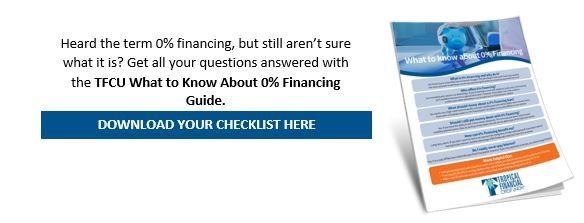Shopping for a new car loan can be as complicated as finding the right vehicle at the right price. Multiple variables determine how much you will pay monthly. The most important factor: your credit score.
Lenders measure risk and set loan rates accordingly based on your perceived ability to repay a car loan. Much of their information comes from a credit report produced by one of the three bureaus, Equifax, Experian and Trans Union. They track your installment-loan payments and credit card activity. Then, they crunch the numbers using software from the Fair Isaac Corporation to produce a single number, called a FICO score.
Think of that number as your “credit grade-point average” with an accompanying letter grade from A++ down to E. The higher your grade, the lower your loan rate.
At Tropical Financial Credit Union, the tiers for car loans looked like this in March 2023:
A++: Score of 780 or higher
A+: 730-799
A: 700-729
B: 660-699
C: 620-659
D: 590-619
E: 589 or lower
Late last year, Experian estimated the average loan rate of 4.75% with an A++ score, almost tripling to 13.42% with an E score.
Here is how FICO is calculated and how you can keep your score high:
Payment history (35% of your score): The more late payments on your report, the lower your score. Personal bankruptcy hurts your score the most. If you file for Chapter 7 in which all debts are discharged, that court action may stay on your credit report for 10 years. If you file for Chapter 13 in which debts are partly paid, the negative news stays on your report for seven years. You boost your score by making payments on time; they do not have to be in full, just never late.
Debt-to-credit ratio (30%): This is how much of your available credit you are using. When you borrow to the limit on credit cards or personal lines of credit, you score goes down, even if you make payments on time. Conversely, the less you use, the higher your score.
Length of credit (15%): How long you have had credit? What is the average age of your credit accounts? The more years you maintain good credit habits such as on-time payments and low balances, the higher your score.
Mix of credit types (10%): There are two types of individual credit: installment loans like a mortgage and a car loan, and revolving credit like a credit card. Lenders like to see some of both on your record with, of course, on-time payments for all of them.
Recent credit applications (10%): When you apply for new credit, a note goes into your file whether you are approved or not. A big red flag: You apply for a bunch of credit cards in a short time period. Be conservative with your credit; while your inbox may be filled with attractive offers for cash back and airline miles, each one that you accept will lower your score for up to six months.
Wondering what your credit score is right now? Don’t sign up for paid services that promise a comprehensive report. By federal law, you can get a free one once a year that has information from all three credit bureaus from Annualcreditreport.com. Read through the report and contact the credit bureaus to correct any errors.
With your FICO score and other personal financial information, learn how Tropical Financial car loans work and contact an auto advisor to find some of the lowest rates in South Florida.



